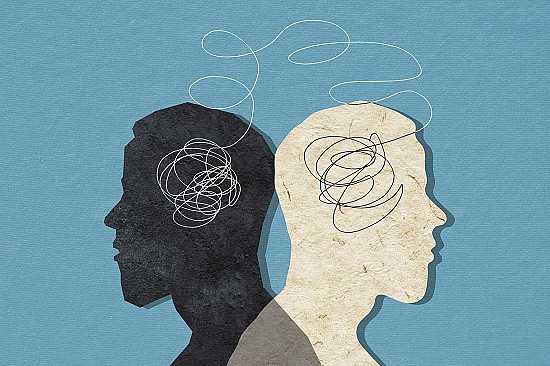Self-regulation for adults: Strategies for getting a handle on emotions and behavior
- Reviewed by Gregory Fricchione, MD, Contributor; Editorial Advisory Board Member, Harvard Health Publishing

Everyone has unpleasant emotions from time to time such as anger, jealousy, fear, or anxiety. It's human nature. But a key to living a satisfying life and getting along with others is to be able to manage your emotions and behavior even in times of stress. One way to do this is with self-regulation.
What is self-regulation?
Self-regulation is the act of controlling your behaviors, thoughts, emotions, choices, and impulses. Self-regulation skills help you keep negative emotions in check and think before you react. In essence, it's a type of self-control or emotion regulation.
Negative emotions are disruptive. They can interfere with your happiness, productivity, and relationships. While you can't always avoid negative feelings, you can change the way you react to them.
Self-regulation draws upon:
- emotional stability
- self-discipline
- flexibility in adapting to different situations
- persistence in getting through tough times
- strong personal values that guide your reactions and decisions.
People with good self-regulation skills can still feel sad, angry, or stressed during difficult times. But they have learned to manage these challenges better.
Why is self-regulation important?
When confronted with distressing or challenging situations, people with a strong ability to self-regulate can maintain a measured outlook and respond with thoughtfulness and maturity.
People with good emotion regulation skills tend to have healthier behaviors and better overall health. Some of the healthy behaviors connected with self-regulation include being physically active, having a good diet, and not smoking.
On the other hand, people who are emotionally dysregulated experience high levels of stress and anxiety that can lead to poor physical and mental health. Some of the conditions associated with emotional dysregulation include being more sedentary, being overweight, and having high blood pressure and other stress-related problems.
Having good self-regulation yourself can be especially valuable for parents teaching these skills to their children, from toddlers to teenagers.
Techniques for improving self-regulation
Improving your emotion regulation skills can help you be better prepared when you encounter obstacles — big or small — throughout your life.
Self-regulation starts with exploring and understanding your behaviors, emotional reactions, and impulses. For example, do you notice that you are triggered by certain environments or people? Are you responding to an experience in your past rather than the current situation? You then consider the consequences of possible responses, and consciously choose those that can lead to a more positive outcome.
Mindfulness and cognitive behavior strategies are two ways to do this.
Mindfulness and self-regulation
Mindfulness plays a strong role in self-regulation. It involves focusing one's awareness on the breath and then expanding awareness in an open way to passing thoughts, and taking the time to calm them by focusing on the present moment without judgment.
Practicing mindfulness helps you appreciate the simple pleasures of life. Then, when you face stressful situations, you can tap into those feelings of peace and satisfaction to help you self-regulate and keep your emotions under your control. Practicing mindfulness can help you build the capacity to to deal with problems.
Cognitive behavioral strategies for self-regulation
Cognitive behavioral strategies help one reduce internal drivers of emotional dysregulation by replacing unhelpful thoughts and behaviors with positive ones. These techniques are often done with the help of a therapist, but they can be practiced at home as well.
Cognitive behavioral techniques include identifying and labeling your emotions, understanding the reasons for your emotions that may include distorted thoughts or catastrophizing, and learning to let painful feelings go. You might also consider any regrettable responses you have had to difficult and stressful situations in the past, and replace those behaviors with positive alternatives.
Practical tips for daily self-regulation
The ability to self-regulate can be learned and improved. One tip to help you practice improving your self-regulation skills involves using the four-step Stop-Breathe-Reflect-Choose approach:
- When you feel upsetting emotions, tell yourself to calm down and think more clearly.
- Try to relax by taking deep slow breaths, counting to 10, or taking a walk.
- Don't react until you feel like you have your emotions under control.
- Think about responding instead of simply reacting.
About the Author

Lisa Catanese, ELS, Health Writer
About the Reviewer

Gregory Fricchione, MD, Contributor; Editorial Advisory Board Member, Harvard Health Publishing
Disclaimer:
As a service to our readers, Harvard Health Publishing provides access to our library of archived content. Please note the date of last review or update on all articles.
No content on this site, regardless of date, should ever be used as a substitute for direct medical advice from your doctor or other qualified clinician.















